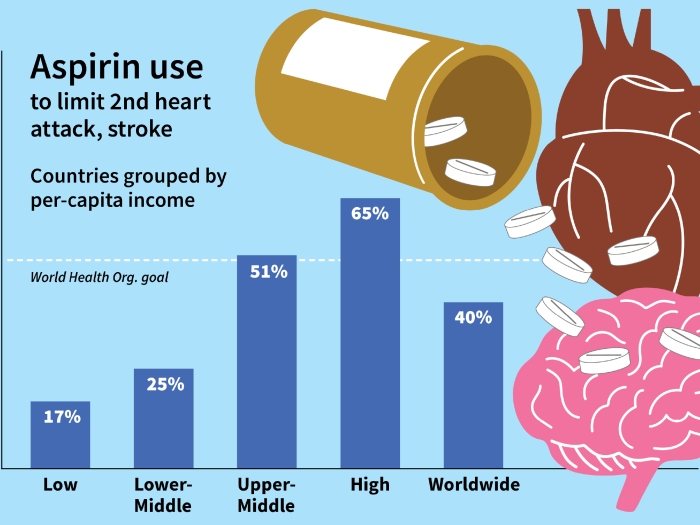White adults were twice as likely as Black adults to receive mechanical heart pumps or heart transplants, according to study.
5:00 AM

*This article was adapted from a NIH release
Black adults treated at advanced heart failure centers received potentially life-changing therapies, such as transplants and heart pumps, about half as often as white adults, possibly due to racial bias, a small National Institutes of Health-supported study has found.
Researchers followed 377 patients receiving treatment at one of 21 centers in the U.S. and found that 62 of 277 white adults (22%) received a heart transplant or ventricular assist device, a mechanical device that pumps blood for the heart. In comparison, 11 of 100 Black adults (11%) received these end-stage heart failure therapies, which can extend and improve a patient's quality of life.
The researchers said the findings, which appear in Circulation: Heart Failure, underscore the importance in strengthening equity in clinical decision-making for the 600,000 Americans – particularly Black adults – who have end-stage heart failure. Prior studies have shown Black adults have a greater risk for heart failure and are twice as likely to die from it.
"The totality of the evidence suggests that we as heart failure providers are perpetuating current inequities," said Thomas M. Cascino, M.D., the first study author and a cardiologist at the University of Michigan Health Frankel Cardiovascular Center.
"But recognizing disparities isn't enough," added Cascino, who is also a clinical instructor in the Division of Cardiovascular Disease at University of Michigan Medical School. "As physicians and healthcare providers, we must find ways to create equitable change."
The findings are from the Registry Evaluation of Vital Information for VADs in Ambulatory Life (REVIVAL), an observational two-year study supported by NHLBI to better understand the course of heart failure. This part of the study expands on previous research analyzing disparities in advanced heart failure treatment.
SEE ALSO: Rate of food insecurity skyrockets for Americans with cardiovascular disease (uofmhealth.org)
For their analysis, the researchers controlled for multiple factors, including disease severity, quality of life, and several social determinants of health, or conditions within the environment where people live that affect health outcomes. They did not find associations between the patients' race and death rates. Eighteen Black adults (18%) and 36 white adults (13%) died during the study. Importantly, they found that treatment preferences between the two groups were similar. Yet, being Black was associated with a 55% reduced rate for receiving VAD therapy or a heart transplant.
The researchers said the findings expanded on their current understanding of disparities in heart failure treatment by showing that patient treatment preferences did not drive the inequities. They added the notable disparity in treatment that Black and white patients actually received, and the researchers' inability to explain it by other measures, suggested unconscious bias – and even overt racism and discrimination – among healthcare providers and within the healthcare system itself had likely come into play.
"The lives disabled or lost are simply too many," said Wendy C. Taddei-Peters, Ph.D., a study author and clinical trials project official within the Division of Cardiovascular Sciences at the National Heart, Lung, and Blood Institute. "An immediate step could be to require implicit bias training, particularly for transplant and VAD team members."
In addition to encouraging training to help healthcare professionals become aware of their biases, the researchers recommend studying ways to standardize advanced heart failure therapy. Using patient registries to identify when and where disparities in clinical care occur could be a start.
The totality of the evidence suggests that we as heart failure providers are perpetuating current inequities.Thomas M. Cascino, M.D.
Typically, physicians refer patients for advanced heart failure therapy after assessing multiple factors, such as the patient's cognitive function, their likelihood of taking medication, and the caregiving help they may receive after treatment.
SEE ALSO: The realities of heart disease in Black and Hispanic women (uofmhealth.org)
To support uniformity in these assessments and other aspects of clinical care, the researchers said medical centers could partner with "disparity experts" who could join cardiology team meetings and identify pivotal decision-making points where bias may creep in.
"Disparity experts can identify these biases and barriers in real-time, provide learning opportunities, and promote equity," Taddei-Peters said. "This can be especially valuable for centers where the demographics of healthcare providers may not reflect the patients they serve."
The Centers for Disease Control and Prevention estimates that 6.2 million Americans have heart failure. Common symptoms may include shortness of breath, swelling in the lower body, such as the legs and ankles, and feeling tired.
Underlying risk factors for heart failure, such as diabetes, can also disproportionately affect Black, American Indian and Alaska Native, and Hispanic adults.
Learn more about heart failure and health disparity research.
Live your healthiest life: Get tips from top experts weekly. Subscribe to the Michigan Health blog newsletter
Headlines from the frontlines: The power of scientific discovery harnessed and delivered to your inbox every week. Subscribe to the Michigan Health Lab blog newsletter
Like Podcasts? Add the Michigan Medicine News Break on Spotify, Apple Podcasts or anywhere you listen to podcasts.
Additional authors include Monica Colvin, M.D., Blair Richards, M.P.H., Shokoufeh Khalatbari, M.S., Daphne C. Watkins, Ph.D., Keith D. Aaronson, M.D., M.S., all of University of Michigan, David E Lanfear, Henry Ford Hospital, Douglas L. Mann, Washington University School of Medicine, Neal Jeffries, National Heart, Lung, and Blood Institute, Garrick C. Stewart, M.D., M.P.H., Brigham and Women's Hospital.
The study was partially funded by the National Center for Advancing Translational Sciences and NHLBI.
Paper cited: "Racial inequities in access to VAD and transplant persist after consideration for preferences for care: A report from the Registry Evaluation of Vital Information for VADs in Ambulatory Life (REVIVAL)," Circulation: Heart Failure. DOI: 10.1161/CIRCHEARTFAILURE.122.009745

Explore a variety of healthcare news & stories by visiting the Health Lab home page for more articles.

Department of Communication at Michigan Medicine
Want top health & research news weekly? Sign up for Health Lab’s newsletters today!





